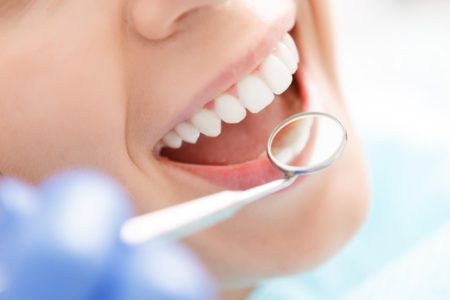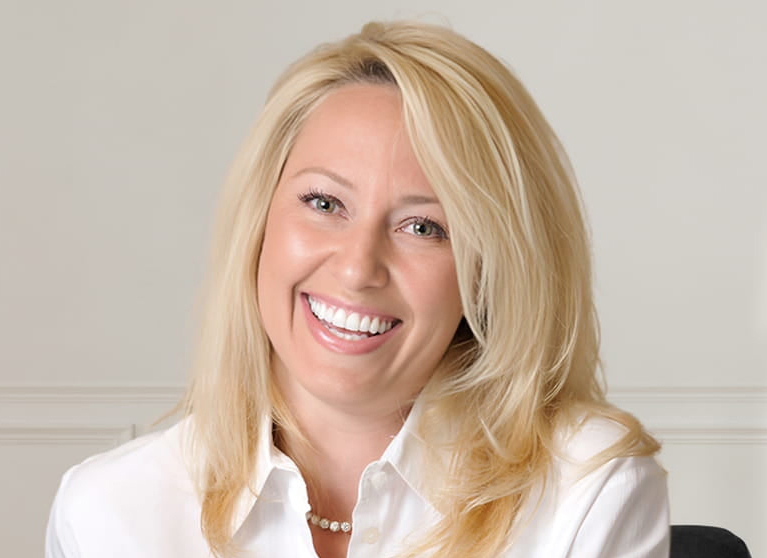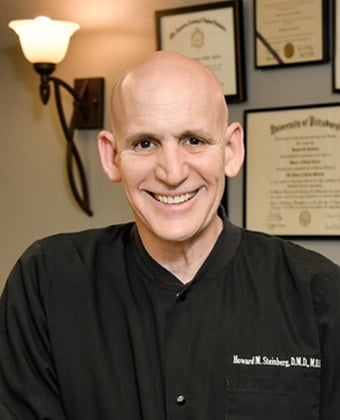Preventive Dentistry

Your Mouth: The Inside Story
When you look at your mouth in the mirror, you can see hard white teeth surrounded by soft gums. What you likely can’t see is a sticky coating of bacteria on your teeth and gums. This coating, called a plaque bio-film, can harm your mouth if it’s not kept under control. Even in a healthy mouth, plaque forms. If not cleared away with daily brushing and flossing, this sticky bio-film grows rapidly. Plaque can cause two serious problems: tooth decay and gum disease. These problems damage the teeth and gums, and may eventually lead to tooth loss. When the mouth is well cared for, tooth decay and gum disease can be avoided.
Oral Health & Overall Health
Recent studies have shown a connection between oral health and overall holistic health. Research is continually emerging that demonstrates a link between periodontal (gum) disease and health problems like diabetes, heart disease, and strokes. The American Journal of Preventive Medicine recently published a study showing the impact of periodontal health on general health.
U.S. Gum Disease Statistics
Data from the Centers for Disease Control and Prevention show a high prevalence of gum disease in the U.S. population. A recent study estimates that 47.2 percent, or 64.7 million adults in the United States, have mild, moderate or severe gum disease. This means one out of every two U.S. adults aged 30 and over has some form of gum disease.
- Periodontal disease was found in 84% of patients with Coronary Artery Disease.
- 47% of all U.S. adults have some stage of gum disease
- 70% of U.S. adults aged 65 and older have gum disease
- 95% of U.S. adults with diabetes also have gum disease
- 15% of all U.S. adults have advanced gum disease
Frequently Asked Questions
What is Tooth Decay?
Tooth decay happens when acid eats away at a tooth. Cavities (also called caries) are holes that form in the teeth. They are most common in places that are hard to reach with a toothbrush. This includes the grooves at the tops of the teeth and on the sides where the teeth touch. Because it affects hard-to-reach areas, you may not be able to see tooth decay in a mirror. Tooth pain indicates late-stage decay.
What is Gum Disease?
Gum disease (also called periodontal disease) damages the tissues that support the teeth. There are often no symptoms until the late stages. Gum disease starts when tartar under the gumline infects the gums. Over time, the ligaments attaching the gums to the teeth break down. Pockets (spaces) form between the gums and the teeth where the gums are no longer attached. A dentist or dental hygienist can detect these pockets using an instrument called a probe. If not treated, gum disease will eventually destroy the bone that anchors the teeth.
How Does Gum Disease Start?
Gum disease starts when tartar and bacteria under the gumline lead to infection (overgrowth of bacteria). As the body fights the infection, the gums become inflamed (irritated and swollen). Pockets (spaces) form between tooth and gum, making plaque harder to remove. As the disease advances, bone damage occurs. This can lead to tooth loss.
What is a Dental Hygienist?
A dental hygienist is a member of the dental team focused on preventing oral disease and identifying and treating oral disease while it is still manageable. Dental hygienists are oral health professionals who provide a range of services including dental cleanings, sealants, fluoride treatments, oral cancer screenings, and oral health education.
Can Diet Affect Oral Health?
Food and drinks containing simple sugars promote tooth decay. Acidic foods and drinks can also be harmful, if you have them often. For example, pickles, citrus fruits, tomato products, coffee and alcohol can harm the enamel coating of teeth. It is not only what you eat but when you eat, and how you care for your teeth that can affect oral health. Eat a balanced diet, avoid sugary snacks, and remember to regularly brush and floss your teeth.
What Oral Care Products Should I Use?
Use a toothbrush with soft to medium filaments (bristles). Recent studies have shown that electric toothbrushes are better than manual toothbrushes at removing dental plaque. There are now so many toothpastes on the market that it has become difficult to know which is best for you. Always look for the ADA seal on your toothpaste’s box. This seal shows the product has been tested, its claims are legitimate and its ingredients are effective. Most commercially available mouthwashes can help with bad breath. Some mouthwashes contain additional fluoride to help prevent tooth decay. Only prescription strength mouthwash that contains specific anti-bacterial ingredients can help manage gum disease. Basic dental floss coated with a light layer of wax is preferred to unwaxed floss for cleaning between teeth. If you don’t like floss, a variety of interdental cleaners (eg. Water Flossers, Interdental Brushes & Picks) are excellent for cleaning between teeth and under the gumline.
Common Preventive Treatments
Cleaning. A professional dental cleaning removes disease-causing dental plaque and calculus (tartar) from your teeth — especially in those hard-to-reach areas near the gum line. Professional cleaning treatments are the primary means of preventing and treating periodontal disease and maintaining oral health. Deep cleaning is done to remove heavy deposits near or under the gumline. Dental plaque and tartar are removed (scaling) and the surfaces of tooth roots are smoothed (planing).
Fluoride. Fluoride can be applied directly to your teeth at the dental office. This mineral is readily incorporated into the mineral structure of teeth making them stronger and more decay-resistant. Fluoride can even prevent tiny cavities from becoming larger. Professional fluoride treatments generally take just a few minutes. The fluoride may be in the form of a solution, gel, foam or varnish.
Decay Diagnosis. Diagnosing decay and detecting cavities is fundamental to preventive dentistry. By using advanced technology, we can detect areas of demineralization and decay at the earliest possible stages. Dr. Steinberg and his hygienists regularly use laser fluorescence technology with other diagnostic tools to detect and monitor the progression of tooth decay and aid in the decision to prevent, remineralize, or restore.
Sealants. Dental sealants are a treatment intended to prevent tooth decay. Sealants can prevent cavities from forming and the need for fillings later on. These invisible coatings fill the tiny grooves in teeth so they do not become havens for bacteria. Dental sealants are mainly used in children who are at higher risk of tooth decay. It is important to note that while sealants do offer protection from tooth decay, they are not substitutes for good oral hygiene.
Cancer Screening. Oral cancer screenings are a routine part of preventive dentistry. Historically the death rate associated with oral cancer is particularly high not because it is hard to discover or diagnose, but due to the cancer being routinely discovered late in its development. Your best chance of surviving oral cancer — a disease that affects millions of people every year — is early detection and treatment.
Avoid Dental Problems and Oral Disease
Regular preventive dental care, early diagnosis and treatment can help you avoid more costly dental problems and oral disease. Contact Dr. Howard M. Steinberg and his team to find out if preventive dentistry is right for you.
SCHEDULE A FREE CONSULTATION
Optimize your oral health. Schedule a Free, no obligation consultation.





